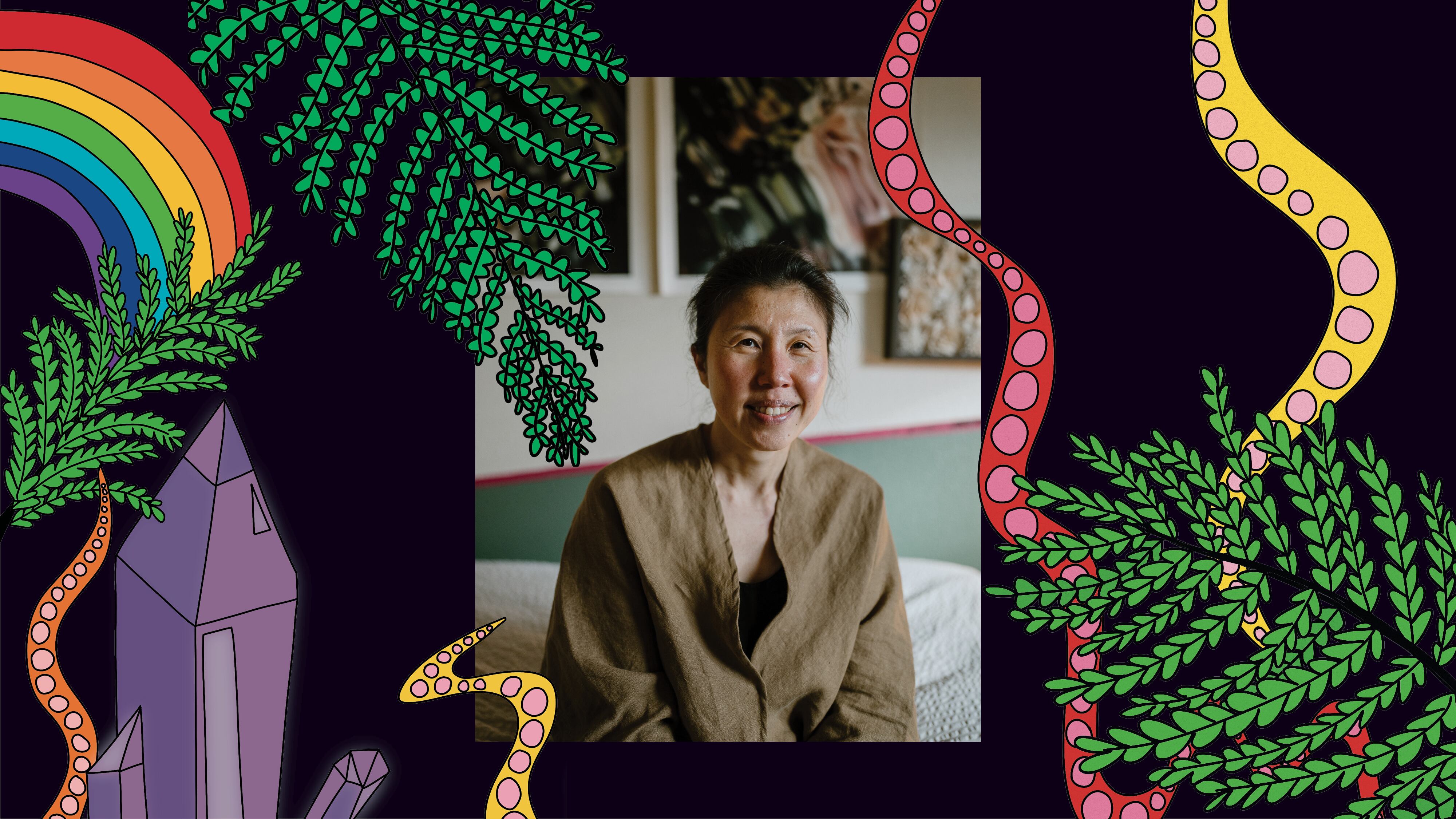I was born in Singapore, a prosperous, thriving country in Southeast Asia where drug offenses can land you a death sentence by long-drop hanging. People are often surprised when I say my job is to support folks while they trip on magic mushrooms in Portland.
As a 17-year-old, I went to high school in Perth, Australia, where I partied too hard. I had fun experimenting with psychedelics, but one evening, chilling with the wrong crowd, I took a tab of acid that was not quite right (or maybe it was me who was not quite right).
Things spiraled out of control, and I ended up on a terrifying trip that wouldn’t end. There were no kaleidoscoping fractals, no cool colors. I became convinced that criminal overlords were going to silence me or cops were going to arrest me. Everything felt awful and real.
Barely able to string a sentence together, I called my dad in Singapore. He reached out to a family friend in Perth who bought my plane ticket and dropped me at the airport. I couldn’t pack my suitcase, so I got on the flight wearing slippers and the shorts and T-shirt I wore for bed. Once home, I sought psychiatric help because the horror of that trip lingered.
A quarter century later, grappling with the doldrums of midlife, I took my first therapeutic psilocybin journey, with eye mask and headphones, in Portland. It was scary and exhilarating. A day later, I felt ungrounded, and I thought to myself, I don’t think I’ll do that again.
But, surprise, I’ve done more than a dozen psilocybin trips since then. See, the magic happens not right away, but over the weeks, months and years following an experience. Over time, I noticed I was handling the challenges of “being me” a little better; I was able to do life with a bit more resilience, grace and fortitude.
I attribute that outcome to the professional preparation, facilitation and integration I received from my facilitator, who was also a licensed counselor. Comparing my bad trip at 17 with my midlife facilitated experience showed me the importance of having the right attitude, and the proper set and setting, ingredients that make a positive experience much more likely.
I learned so much from this structured encounter with psilocybin that I signed up for a psilocybin facilitator course with Fluence in 2022. I graduated in November 2023 and have since supported more than 175 people on therapeutic mushroom trips at service centers around town.
Before legalization, Oregon had been home to a wonderful community of underground facilitators, and I have friends who are part of it. When I started working within the legal system, some of these friends would gripe about the commercialization of psychedelic work, about how the legalization movement was just another tentacle of capitalism. They didn’t like the idea of state regulation and service centers because they felt it was not “in the spirit of the mushroom,” that it was “an affront to psilocybin’s sacred, indigenous roots.”
Hearing all this, I felt a little sheepish guiding aboveground. But through my work, I’ve come to realize that one isn’t better than the other. It’s a case of different strokes for different folks.
Coming from Singapore, I understand how breaking laws can be a huge obstacle that may deter people from experiencing the benefits of psychedelics. People in the medical profession and former military personnel, for example, might see the benefits of psilocybin, but they may never consider doing it illegally. Same for people struggling with religious conditioning.
Licensed facilitators and service centers give such groups—or anyone who wants more assurance and accountability—the opportunity to work with psychedelics without the paranoia.
In my experience, unregulated sessions can involve shamanic or New Age elements. While that can be helpful and uplifting, it’s not everyone’s cup of (mushroom) tea. In a clinical setting, facilitators do their best to be nondirective. The experience is guided by the client’s beliefs, so atheists can be just as comfortable as those who consider themselves spiritual.
Perhaps because of my early experience with LSD, or maybe because I’m Singaporean, I’ve chosen to work within Oregon’s legal framework. Others chose not to. As a psychedelic worker, I think both approaches are valid, as long as guides know where clients are going and what to do if they get lost, and both parties approach the experience with humility, respect and an open heart.
Read the cover story: Our reporter takes the cheapest legal mushroom trip in town.
